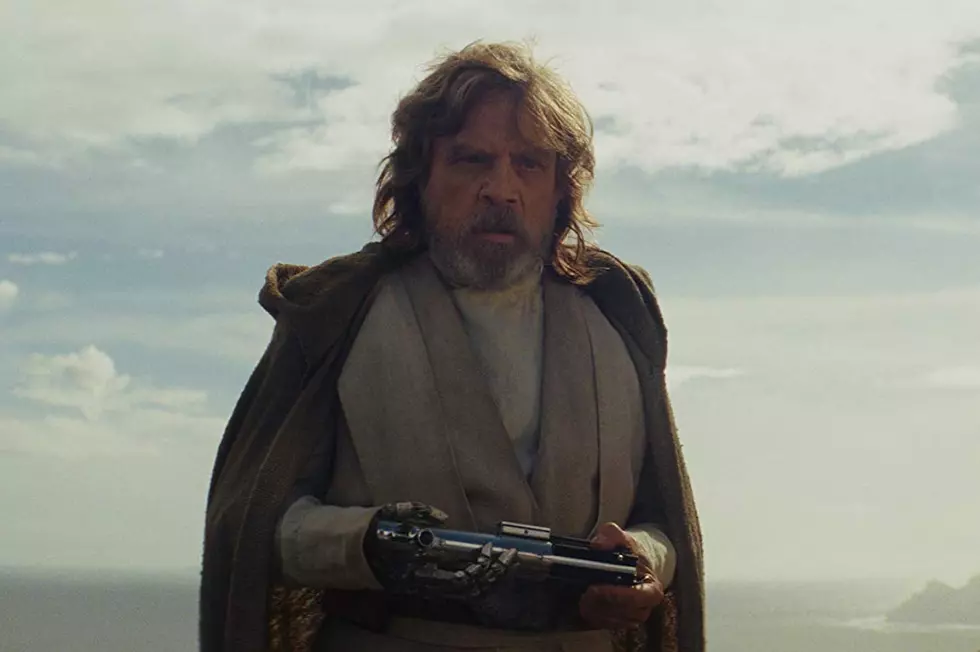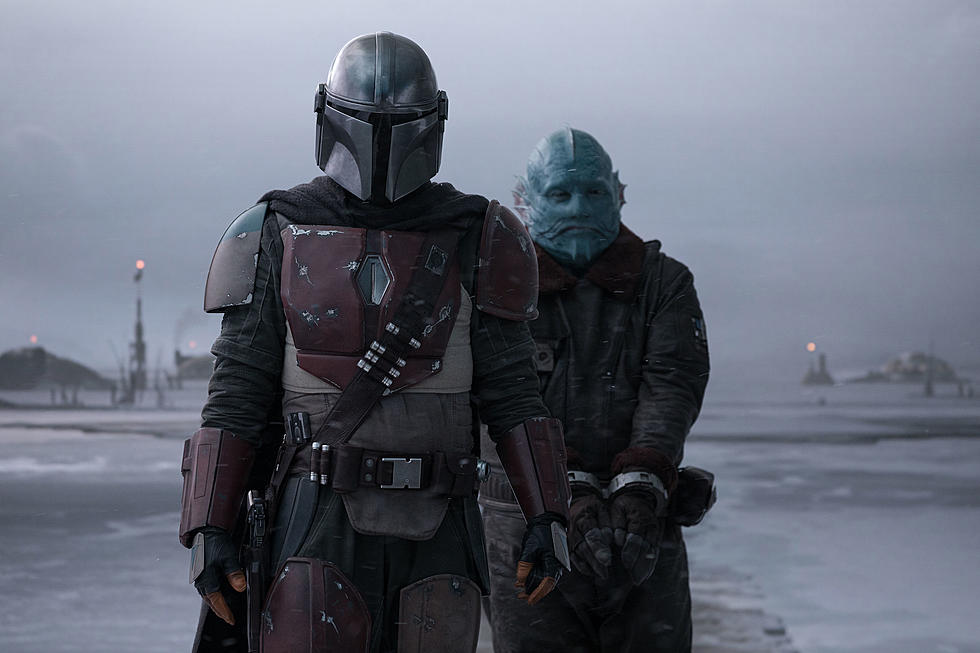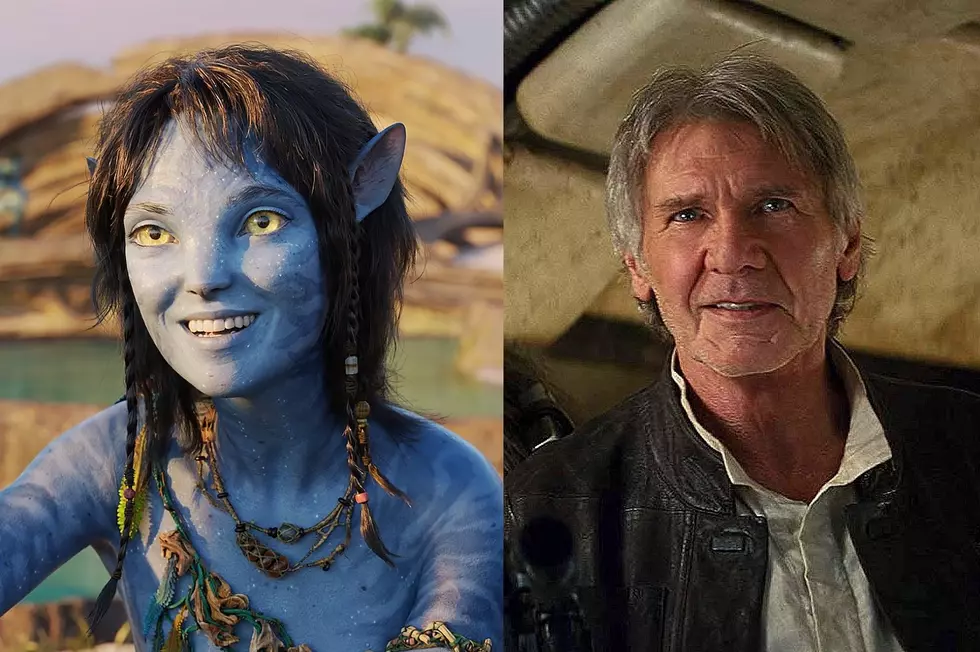
Why ‘Star Wars: The Last Jedi’ Really Pissed Off Fans
One of the most interesting side effects of early press screenings is that critics see films before their consensuses or controversies coalesce. If you go back and read my original review of Star Wars: The Last Jedi, published three days before the movie opened in theaters, it’s utterly clueless as to the reception awaiting the film. The Force Awakens was an enormous critical and commercial success; four years later, it still holds the title of the biggest domestic box office in history. The Last Jedi seemed to do everything The Force Awakens did on a bigger and more emotional scale. How could it fail?
Technically, it didn’t. With The Rise of Skywalker about to open in theaters, The Last Jedi remains the ninth-biggest movie in U.S. history, and the 13th-biggest movie ever worldwide. Still, a vocal minority of fans hated the movie. (it’s weird how fans in this context means people who despise something, but that’s where we are these days.) Their complaints focused on a few areas. Naysayers accused The Last Jedi of being too jokey, or breaking certain established rules of Star Wars physics, or espousing progressive values, or dismissing some of the larger mysteries established in The Force Awakens by director J.J. Abrams, or turning the franchise’s foundational hero, Luke Skywalker, into a bitter old man.
In retrospect, I should have suspected some of these takes were coming, because while there were a lot of different objections to The Last Jedi, almost all of them are extensions of the film’s message. In its own quiet way, Star Wars: The Last Jedi is shockingly and almost perversely anti-Star Wars.
That doesn’t mean I think, as some of the more extreme and ill-informed fans argued upon The Last Jedi’s release, that writer/director Rian Johnson hates Star Wars. His love of the series, its characters, and its iconography is clear from The Last Jedi’s opening moments right through its final emotional tableau. What Johnson may not like — or at least what I see The Last Jedi as deeply suspicious of — is Star Wars’ endless need to return to the same concepts in movie after movie. The Last Jedi suggests this series needs to evolve beyond what it has been for 40 years if it’s going to remain relevant. The Last Jedi is his attempt to start that evolution — and to warn longtime Star Wars fans that they may need to loosen their grip on this thing that they love so dearly.
The film that preceded Johnson’s, Star Wars: The Force Awakens, did introduce a new generation of Star Wars characters, including Force-sensitive scavenger Rey and First Order defector Finn. The movie itself, though, was almost slavishly indebted to the original Star Wars trilogy. It brought back many of the series’ most beloved heroes and it put all the actors, old and new, into a story that recycled almost every significant beat from 1977’s Star Wars. It begins with a droid on a desert planet carrying a message of vital importance to an orphan and ends with the heroes blowing up a dollar store Death Star after a wise old hero sacrifices his life at the hands of a younger evildoer with whom he shares a complicated past.
The Last Jedi definitely shares some DNA with Star Wars’s very first sequel, The Empire Strikes Back, but Johnson’s film not only differs from it in several important ways, it strongly argues that any demand for blind devotion to the plot points of the earlier films is misguided. Throughout The Last Jedi, characters insist upon discarding the past and embracing the future. In fact, this is the only thing the heroes, represented by Luke Skywalker, and the villains, represented by Kylo Ren, agree on in the film.
Kylo repeatedly tries to convince Rey to join him on the Dark Side of the Force. His argument returns to the same key point: They should forget Luke, forget Supreme Leader Snoke, and rule together. (It’s basically “OK boomer” as a government platform.) When Kylo and Rey communicate telepathically via the Force, Kylo urges Rey to “let the past die. Kill it, if you have to.” Later, when they are physically reunited and work together to kill Snoke and his guards, he says once again “It’s time to let old things die. Snoke... Skywalker... the Sith... the Jedi... the rebels. Rey... I want you to join me. We can rule together and bring a new order to the galaxy.”
One might assume that because Kylo Ren is one of The Last Jedi’s antagonists that the audience is supposed to reject his philosophy. Instead, it’s curiously aligned with Luke Skywalker’s. Luke spends the entire film trying to convince Rey that she should not become a Jedi. “It's time for the Jedi to end,” he tells her during one of their earliest conversations. He insists that “if you strip away the myth and look at their deeds, the legacy of the Jedi is failure.” And after Rey finally gives up trying to convince Luke to teach her the ways of the Force, Luke attempts to burn down the ancient tree that serves as the repository of the books that hold all of the group’s accumulated knowledge.
At the last minute, Luke hesitates ... and the ghost of his Yoda shows up to finish the job for him.
Some of Yoda’s cavalier attitude toward the Jedi texts in this scene can be explained by the fact that unbeknownst to Luke (but clearly beknownst to Yoda) Rey has already stolen the books and taken them with her as she rejoined the Resistance, which means burning the tree is a meaningless gesture. (One of the cheekiest lines in Johnson’s entire screenplay is when Yoda says “That library contains nothing that the girl Rey does not already possess,” because literally Rey already possess the library.) Still, Yoda agrees on some level that the past should die. He burns the tree, an almost Biblical symbol of his religion’s wisdom. And he tells Luke that the “true burden of all masters” is that they are “what [their students] grow beyond.”
Yoda’s teachings would not, in most situations, be considered radical or even particularly controversial. But in this case, he is essentially advocating for Star Wars to stop living in the past — and no franchise focuses with more singular fervor on living in the past than Star Wars. The very concept of the series is rooted in nostalgia; George Lucas channeled his childhood love of movie serials and old science-fiction magazines when he created the original film. Its opening titles — “A long time ago in a galaxy far, far away” — are essentially an invitation to the audience to travel back to some imagined, unspoiled past. This, in turn, informs how a lot of Star Wars fans look at the property: It was always better a long time ago, and the series must always strive to return to those perfect early days.
Yet here is Yoda, telling Luke — and by extension, the older members of Star Wars’ audience — they need to stop obsessing over the “sacred Jedi texts.” (“Page turners, they were not!” he quips.) He’s referring to the archaic volumes Rey snuck onto the Millennium Falcon, but he might as well be talking about the original Star Wars trilogy. Even the phrase “sacred Jedi texts” reflects the near-religious passion some fans possess for those old Star Wars movies.
So many of the complaints about The Last Jedi are rooted in a rejection of Yoda’s argument. Some fans don’t want Star Wars to grow beyond what was in the Original Trilogy. They still want Star Wars to be about Luke Skywalker, the superhero who saves the day and redeems his dad. They don’t want inventive twists on the technology of Star Wars, even though all of Star Wars’ technology is ludicrous and made-up anyway. They don’t want characters like Rey to be entirely new to the saga; they don’t want her parents to be “nobody” as Kylo tells her. They want her lineage to have some key connection to the old films, yet again reaffirming their importance and continuing their primacy in this fictional universe.
There’s nothing wrong with loving the old Star Wars movies. 40 years later, they hold up extremely well. But you can’t just keep rehashing them over and over. Eventually, the formula will get stale. (Just ask Solo: A Star Wars Story.) Eventually your fanbase will get just as old as your story beats. Eventually, you won’t need to kill the past. It will be so old it will die off all on its own.
The only way to ensure Star Wars survives is to listen to what Yoda said, to pass on what the old generation has learned and then for the next generation to grow beyond it. Given that the man who directed The Force Awakens also directed The Rise of Skywalker, I am not sure this lesson from the great Jedi master will be heeded this time out. But Yoda has a lesson in The Last Jedi about that, too. When telling Luke what he should have passed on to Rey when he had the chance, Yoda lists “strength, mastery” but also “weakness” and most importantly “failure.” “The greatest teacher, failure is,” Yoda says.
Again, to a fanbase raised on “Do or do not; there is no try,” this might not be an appealing concept. Yoda’s philosophy in The Last Jedi almost reads like a correction to his earlier tenet. You might have to try and fail many times before doing something successfully — like, say, trying to make a Star Wars movie that really pushes the franchise into uncharted territory. But as Yoda reminds Luke as they sit in the shadow of that burning tree, it’s never too late to learn this particular lesson. And if we fail this time, we can simply try again.
Gallery — The Best TV Shows on Disney+:
More From Banana 101.5










